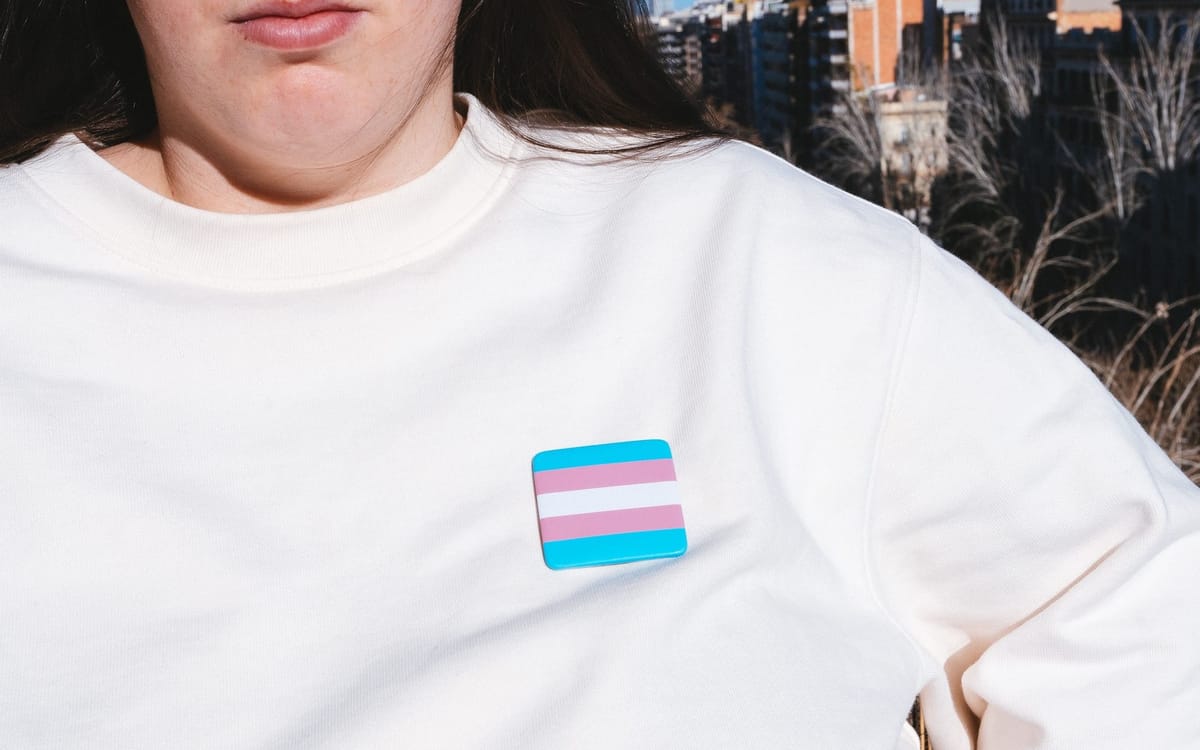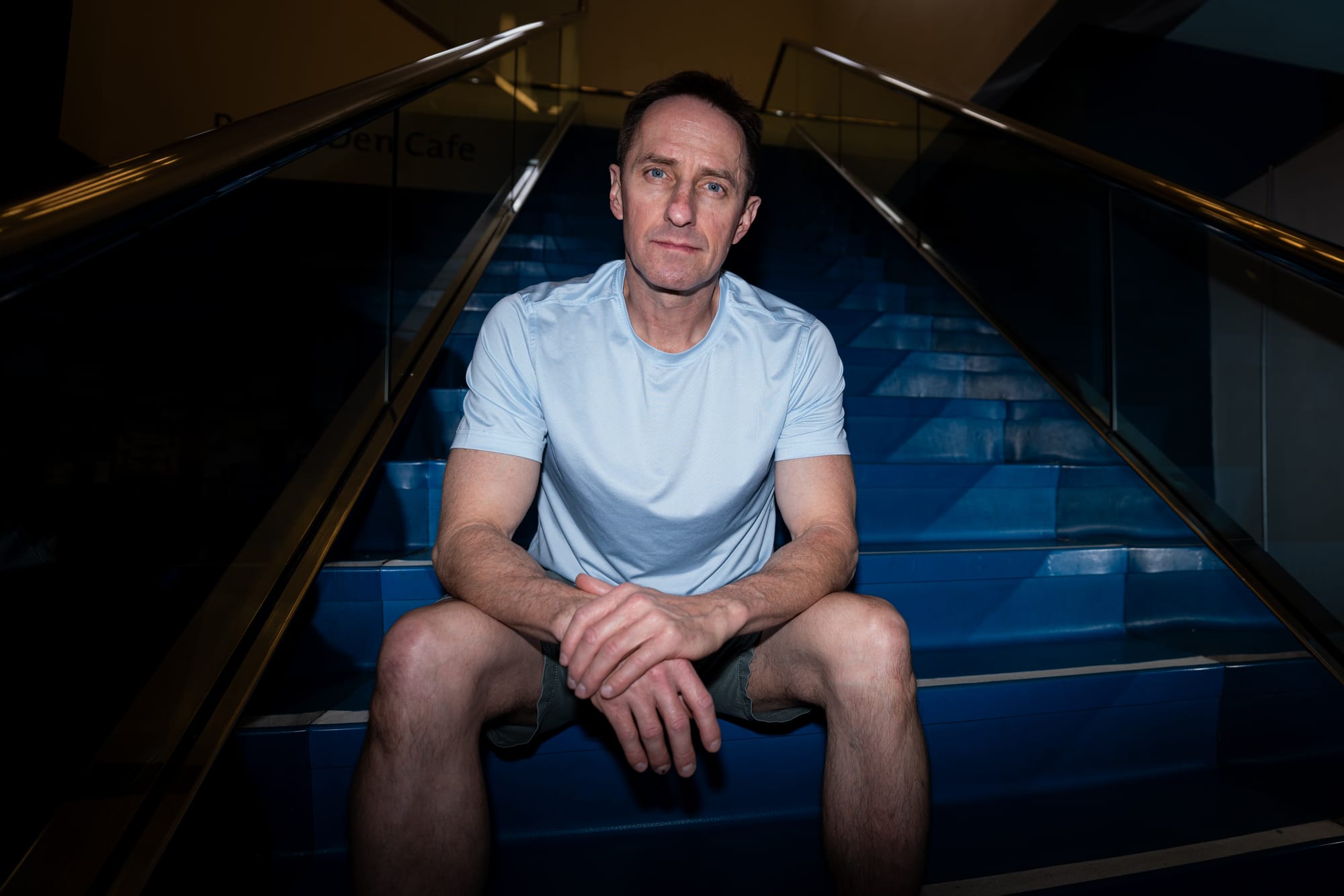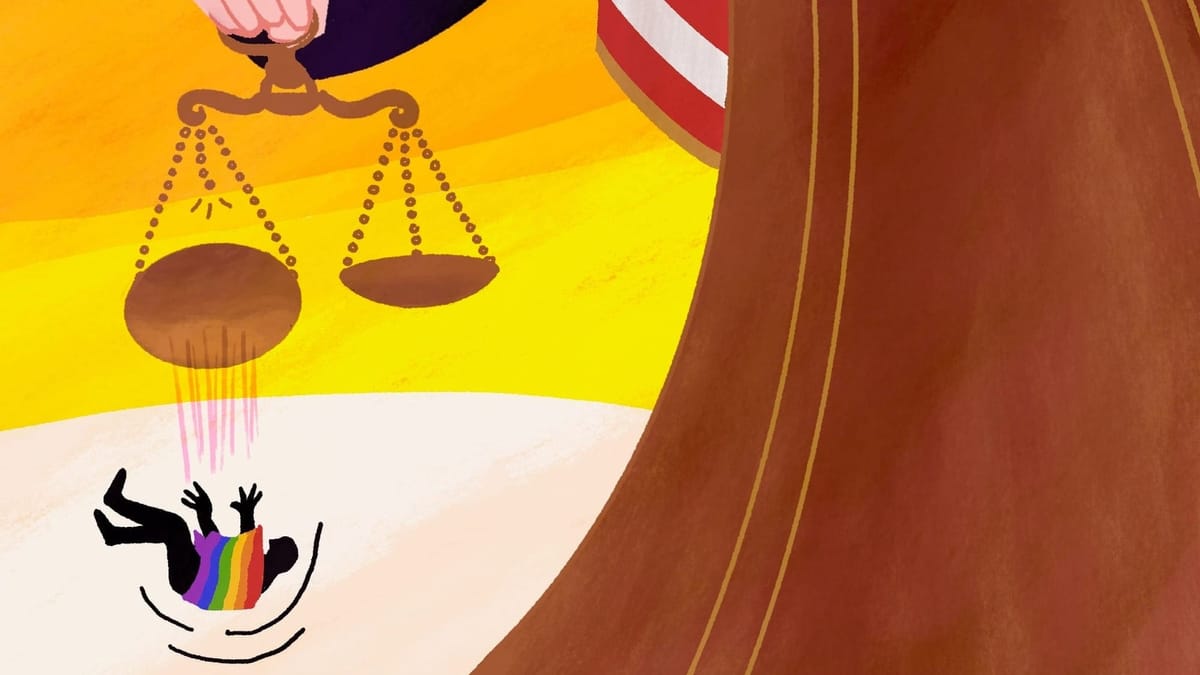Citing Funding Risks, Clinics Cancel Gender-Affirming Treatment for Adults
One adult patient of Planned Parenthood Arizona was told by phone Friday night that the treatment she receives for gender-affirming care was "paused."
Across Arizona, police departments tout LGBTQ+ liaison programs as trust-building tools. But a LOOKOUT and Phoenix New Times report reveals inconsistent roles across departments.

In 2011, Ron Blake said he was raped in his Phoenix condo by his former partner and two others. Though Blake reported the rape the night it happened, and though police showed up and escorted at least one of the men home, it took four years for police to investigate the matter in earnest.
Diagnosed with dissociative amnesia and still struggling to clearly recall the incident, Blake was finally introduced to Julie Smith, a Phoenix police detective who served as the department’s LGBTQ+ liaison on his case. Smith spoke to Blake about the events of that night and escorted him to request an order of protection, which was ultimately denied. Despite that, it was never clear to Blake how Smith was supposed to help him.
A few months later, Blake stopped hearing from Smith entirely. Written testimony from a former detective showed she kept no notes of their interactions. He felt abandoned, and he questioned the purpose of the person who was supposed to be a bridge between the police department and the LGBTQ+ community.
“You can’t tell people everything’s OK for LGBTQ+ people and how they’re being treated by police if I’m still experiencing this,” Blake said. “Their purpose should be to walk me through this. I’m coming out of a deep sleep — I need consistency.”
The job of LGBTQ+ liaison is not an uncommon one in Arizona police departments. Many local agencies — including the largest cop shops in the Valley — have programs meant to provide support for specific communities, foster trust in reporting crimes and encourage people to work with police.
Yet, there is little evidence from local police departments that they have done any of that. A LOOKOUT and Phoenix New Times investigation reveals that many of the people in these positions simply do not serve a clear purpose. None of these departments have accreditation for an LGBTQ+ liaison program, and police have been quiet on what trainings exist across different departments that have a liaison in place. In at least one case, in Flagstaff, a liaison was completely absent during a critical moment for the community.
Such an undertaking by police departments seemingly couldn't come at a better time for groups under siege. But a deeper look at the record shows that too many of these commitments have been all talk — if even that.
In addition to Phoenix, at least 10 other cities in Arizona currently have a designated liaison program: Chandler, Glendale, Tempe, Mesa, Avondale, Gilbert, Peoria, Scottsdale, Flagstaff and Tucson. At its core, LGBTQ+ police liaisons exist to mend the relationship between the LGBTQ+ community and law enforcement, which has been fraught for decades.
In Phoenix, that distrust can be traced back at least to the Eighth Day raid in 1964. In the early morning hours one Sunday, Phoenix police raided Eighth Day Coffee House, an LGBTQ+ social club at 915 N. 1st Street in Downtown Phoenix. They arrested more than 20 people on charges ranging from “lewd and lascivious acts” to “drunk-and-disorderly conduct.” The Arizona Republic printed the names of those arrested, and many lost their jobs.

There are other examples. Phoenix police spied on a local gay bar in the 1990s. Cops clashed with undocumented queer protesters at a Phoenix Pride event a decade ago. Recent cases of gay men and trans people being murdered or assaulted have spurred accusations that police are not taking anti-LGBTQ+ bias seriously.
Liaison programs are intended to repair that broken trust and offer safety and guidance for LGBTQ+ victims, who are 6.5 percent less likely to report crimes than their non-LGBTQ+ counterparts, according to a 2024 report by the ACLU. But simply staffing a liaison isn’t enough.
In 2017, the U.S. Department of Justice said as much in a document from its Office of Community-Oriented Policing Services. The document outlined ways police should interact with LGBTQ+ folks, highlighting the need for more direct conversations, a constant reevaluation of internal practices and procedures, establishing citizen/community police academies that include a focus on LGBTQ+ people’s needs, having a presence at LGBTQ+ events and engagement with queer organizations.
The publication recognized Phoenix PD’s Advisory Board and its two designated LGBTQ+ liaisons’ efforts to “create a climate of trust between the community and the Phoenix Police Department” and “provide a forum where the Phoenix Police Department can listen actively to community concerns and create solutions to social problems.”

But in 2023, the Arizona Mirror and the Howard Center for Investigative Journalism called into question the transparency and efficacy of that same board, claiming the department “releases virtually no information about what the 12 boards do, what they discuss or how — if at all — leadership incorporates any feedback from the boards into police tactics.”
Patrick Kelley, the owner of the Melrose clothing store Off Chute Too, was forced to resign from the LGBTQ+ advisory board in 2017 after he spoke out about the department’s lack of transparency with hate crime statistics, its inconsistent meeting schedules, and its unwillingness to take feedback or suggestions from board and community members.
And an ineffective liaison program is little better than none at all.
Even after Ron Blake finally gained the clarity and bravery to sit down with Det. Smith, he still had a hard time trusting police.
Years passed without significant movement in his case or clear communication about what was going on. The updates he did receive were often riddled with inaccuracies, he said.
In 2023, he learned his case had been closed since 2021. Emails show that no one with Phoenix police — including the liaison assigned to his case — had informed him.

During his long and ongoing quest for justice, Blake said the Arizona Coalition to End Sexual and Domestic Violence did what Phoenix police’s liaison should have been doing. The organization helped Blake get in touch with the Family Advocacy Center and set up a meeting with the Phoenix police brass to discuss making changes addressing LGBTQ+ bias and sexual assault cases.
Blake said two police representatives verbally acknowledged that he was treated differently because he was gay and assured him that they would make changes. But as far as Blake knows, no changes were ever explored. LOOKOUT and New Times have reached out to the Phoenix police’s current LGBTQ+ liaisons, Dets. Gary Nelson and Trey Sueing, for information regarding Blake’s case as well as training information on their liaison program. They have not responded.
It’s not uncommon for organizations to step in when police fail. In 2023, Epona Rose was arrested for assault in Flagstaff after defending herself against a group of men who allegedly threatened and sexually harassed her while making transphobic remarks. LOOKOUT’s reporting showed that Flagstaff police continuously misgendered her and held her in a men’s jail. Despite multiple protests, Flagstaff’s liaison never got involved in the case nor publicly acknowledged any issues.
Flagstaff Queer Collective was among the groups that rallied to Rose’s case. Ben Nicholas, the group’s director, said that Rose’s story was one reason the group was open to creating a relationship with Flagstaff police, which approached FQC in January as part of their efforts to develop their own Citizen Advisory Board.
In June 2024, new Flagstaff Police Chief Sean Connolly came on board and almost immediately began working to develop a Citizen Advisory Board similar to the one he had participated in during his time in Phoenix police. When asked about the critiques the department received about the police response to Epona Rose’s arrest, he said that he was not aware of it and would look into the situation. Notably, a member of Flagstaff Queer Collective told LOOKOUT and New Times that Connelly gave the same response to them two months earlier when the group pressed him on the subject.
According to the department’s Public Information Officer Sgt. Jerry Rintala, the LGBTQ+ Citizen Advisory Board is scheduled to launch within the next 30 to 60 days. In the meantime, Connolly said he has continuously been building and maintaining connections with community members, including Flagstaff Queer Collective.

“When we have these conversations, I want to hear of things that are collaborative and ways we can all generate safety and wellness,” Connolly said. “I’d be incredibly disappointed if (my department) was indifferent to an LGBTQ+ victim. There’s work to be done, and we know that.”
The queer community steps in when police don’t do their job, but what gaps exist when LGBTQ+ liaisons don’t exist to begin with?
It’s unclear exactly how many cities in Arizona do or don’t have LGBTQ+ liaisons. What is clear is that police responses to queer victims of crime, as well as their presence at certain events, aren’t always satisfactory.
In 2023, a gay couple in Queen Creek said the pride flag outside their home was repeatedly vandalized and that people screamed homophobic slurs at them. They filed two police reports, but still received a letter from their homeowner’s association restricting their flag from being displayed. Anti-LGBTQ+ graffiti was spray painted on neighborhood walls. The pair eventually moved for their safety.
The Queen Creek Police Department does not have an LGBTQ+ liaison. Neither does the Pinal County Sheriff’s Department, where portions of Queen Creek are located. Pinal County Sheriff’s Office Public Information Officer Sam Salzwedel told LOOKOUT and New Times they do not have a designated liaison for the LGBTQ+ community or any others because they “protect everybody in the county equally and do not believe in showing preferential treatment.”
In Cottonwood, a rural town in the Verde Valley region of Arizona, Proud Boys, Oathkeepers, and other white and Christian nationalist groups crashed a charity drag show event in Cottonwood, shouting slurs and leaving attendees on edge. Local organizers said police did nothing to intervene. Cottonwood’s department has a terrorism liaison, but not one for LGBTQ+ people.
Such incidents give queer residents pause.
According to Greg Miraglia, a former law enforcement professional who co-founded Out to Protect, the nation’s only non-profit LGBTQ+ police liaison accreditation program, staffing community liaisons is a step toward ensuring equal protection under the law and building trust in law enforcement.
But until Miraglia began his program in 2023, police departments in Arizona and elsewhere lacked formal procedures for establishing an LGBTQ+ liaison. Agencies that choose to create liaison positions decide for themselves what they should do.
Across Arizona’s 10 largest cities with LGBTQ+ liaisons, it’s unclear what responsibilities, training or community practices they share, if any.

There are currently only five police departments in the U.S. with Out to Protect’s accreditation, which was created to fund LGBTQ+ liaison program training. Miraglia says every department that has applied has ultimately earned accreditation, which is granted upon receiving evidence of meeting the program’s six core standards, which include having a full-time liaison who is trained in the position, engaging with the community throughout the year and being a resource within the law enforcement agency.
By offering funded and affordable training programs, Miraglia hopes to eliminate cost as a barrier for departments weighing a LGBTQ+ liaison: “Cost just becomes an excuse for not doing it,” he said. “If (a department) simply doesn’t want to create a program, it’s easy for them to just say they can’t afford it.”

There is some hope for police relations with the LGBTQ+ community.
For the past few years, the Southern Arizona AIDS Foundation has provided “LGBTQ+ 101” training to the Tucson Police Department. In 2022, SAAF’s Anti-Violence Project partnered with the Pima County Attorney’s Office to provide LGBTQ+ victims of sexual assault with a dedicated queer-identifying victim advocate.
Though the latter lasted only about a year, SAAF associate director of program services Emerson Kuhn said these initiatives from law enforcement and the county attorney’s office have helped build healthier relationships between LGBTQ+ community members and the law.
Though SAAF has no data-based results from those trainings, Kuhn said Tucson police community engagement coordinator Margo Susco has been very proactive in keeping in contact with the local LGBTQ+ community. Tucson police lack an official LGBTQ+ liaison, though Susco said she and Assistant Chief Stacie Schaner fill some aspects of that role.
Schaner said she’s been researching liaison programs and intends to explore the possibility of establishing one.
“We’re very aware of how many barriers exist between law enforcement and LGBTQ+ victims of crime who feel like they can’t reach out, especially people of color,” Schaner said. “It’s important to start with internal initiatives, but I’d really like to explore how we can develop more external initiatives.”
Such initiatives are needed. Community organizers and nonprofits serving the queer community are pivotal advocates for ensuring justice and safety for LGBTQ+ Arizonans. But they can’t go it alone.
“Police officers don’t always identify with the community, and that hinders our relationship,” said Joel Mills, a victim services specialist at the Arizona Coalition to End Sexual and Domestic Violence. “If there was a way to connect more and have a direct line, it’d be beneficial. Queer victims of domestic violence don’t always feel like services are for them. The tension between them and the police means they don’t always seek out resources, and police aren’t doing great at following up and giving resources.”
That rings true for Nate Rhoton and his team at One-n-Ten. As the CEO of such a large LGBTQ+ organization, he’d usually be aware of what resources police have dedicated to protect LGBTQ+ folks. But even he didn’t know who the existing Phoenix police LGBTQ+ liaisons were. It wasn’t until LOOKOUT and New Times contacted him for this piece that Rhoton decided to contact the office of Phoenix Mayor Kate Gallego to find out.
Rhoton runs one of the more prominent LBGTQ+ advocacy organizations in the state, and he said Phoenix police liaisons haven’t reached out to introduce themselves.
“If they’re wanting to develop trust, they have to hold the space and listen,” he said. “Our issues go back so long and are so embedded in the DNA of who we are as marginalized people that I don’t think one liaison or one conversation can fix all that. But it can start to develop trust one person at a time.”
At LOOKOUT, we believe in the power of community-supported journalism. You're at the heart of that community, and your support helps us deliver the news and information the LGBTQ+ community needs to thrive.
LOOKOUT Publications (EIN: 92-3129757) is a federally recognized nonprofit news outlet.
All mailed inquiries can be sent to 221 E. Indianola Ave, Phoenix, AZ 85012.